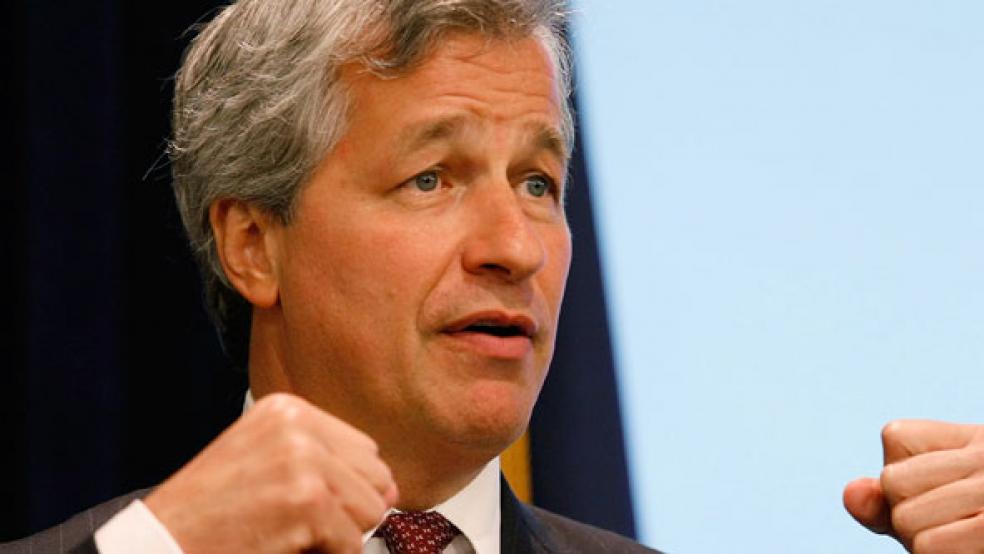Some of the nation’s highest powered CEOs pumped up the pressure on the White House and Congress on Tuesday to deliver a corporate tax rate cut and a balanced federal budget, saying their ability to create jobs depends on this.
Nearly 100 CEOs who belong to the Business Roundtable, an influential business lobbying group, descended on Washington this week to meet with White House officials and lawmakers to nudge them on policies that would enhance their ability to hire and invest.
RELATED: The Two Issues That Can Bring Down the Economy
The group, which includes JPMorgan Chase & Co. CEO Jamie Dimon and Caterpillar CEO Doug Oberhelman, met with President Obama on Tuesday for two-and-half hours, and then with Treasury Secretary Timothy Geithner on Wednesday, to discuss corporate tax reform.
The group’s menu of policy prescriptions, detailed in a new report, echo what CEOs nationwide have increasingly clamored for over the past year. They include an overhaul of the U.S. tax code to slash the corporate rate to 25 percent from the current combined federal and state rate of 39.6 percent, and tax income on a territorial basis so foreign profits are not taxed again once in the U.S. Mention of a territorial taxation system is nowhere to be found in the corporate tax overhaul blueprint released by the Obama administration last week, which also features a less steep corporate rate cut, to 28 percent.
“These uncompetitive tax rates are a disincentive for investment, stifling economic growth and slowing job creation,” said Proctor and Gamble CEO Robert A. McDonald. “If we’re going to drive business growth in the United States and expand economic opportunity for American workers and families, we’ve got to change that.”
The business leaders also said it was essential to balance the federal budget over the next five years—something the president has been less keen on doing. At his meeting with the CEOS Tuesday, President Obama acknowledged that reducing the national debt will require serious work, but said the U.S. budgetary situation is not so severe that this country needs to resort to Greek-style draconian austerity measures. "We don't have to cut by 25 percent and raise taxes by 25 percent. That's not the situation we find ourselves in," Obama said.
The Business Roundtable also wants to prevent several controversial regulations in the Dodd-Frank Wall Street reform law and the health care law – as well as some energy rules proposed by the Environmental Protection agency – from taking effect. The CEOs recommend that policymakers axe the Wall Street reform law’s Volcker Rule to limit proprietary trading; that they axe the health law’s provision to levy an excise tax on high-cost health plans; and that they drop new EPA rules to police an oil and gas extraction technique called hydraulic fracturing.
It’s not that business leaders are adverse to all government regulations, said Dow Chemical Company CEO Andrew Liveris. “In fact, my company, Dow Chemical, wants science-based regulations to help protect workers and families,” said Liveris. “But done wrong, [regulations] impose massive costs on U.S. companies, often with no demonstrable benefit. They become a drag on economic growth and investment, and that means ultimately a drag on job creation.”
Obama has had a tumultuous relationship with the business community during his tenure in office, after many business leaders construed his critiques of big banks’ role in the financial crisis, CEO bonuses, and endorsement of Wall Street reforms as unfairly vilifying their work. Business leaders and the White House have yet to turn any joint policy proposals into law, but Obama has signaled a willingness to lend his ear more to business grievances as part of his administration’s efforts to shore up domestic jobs.





